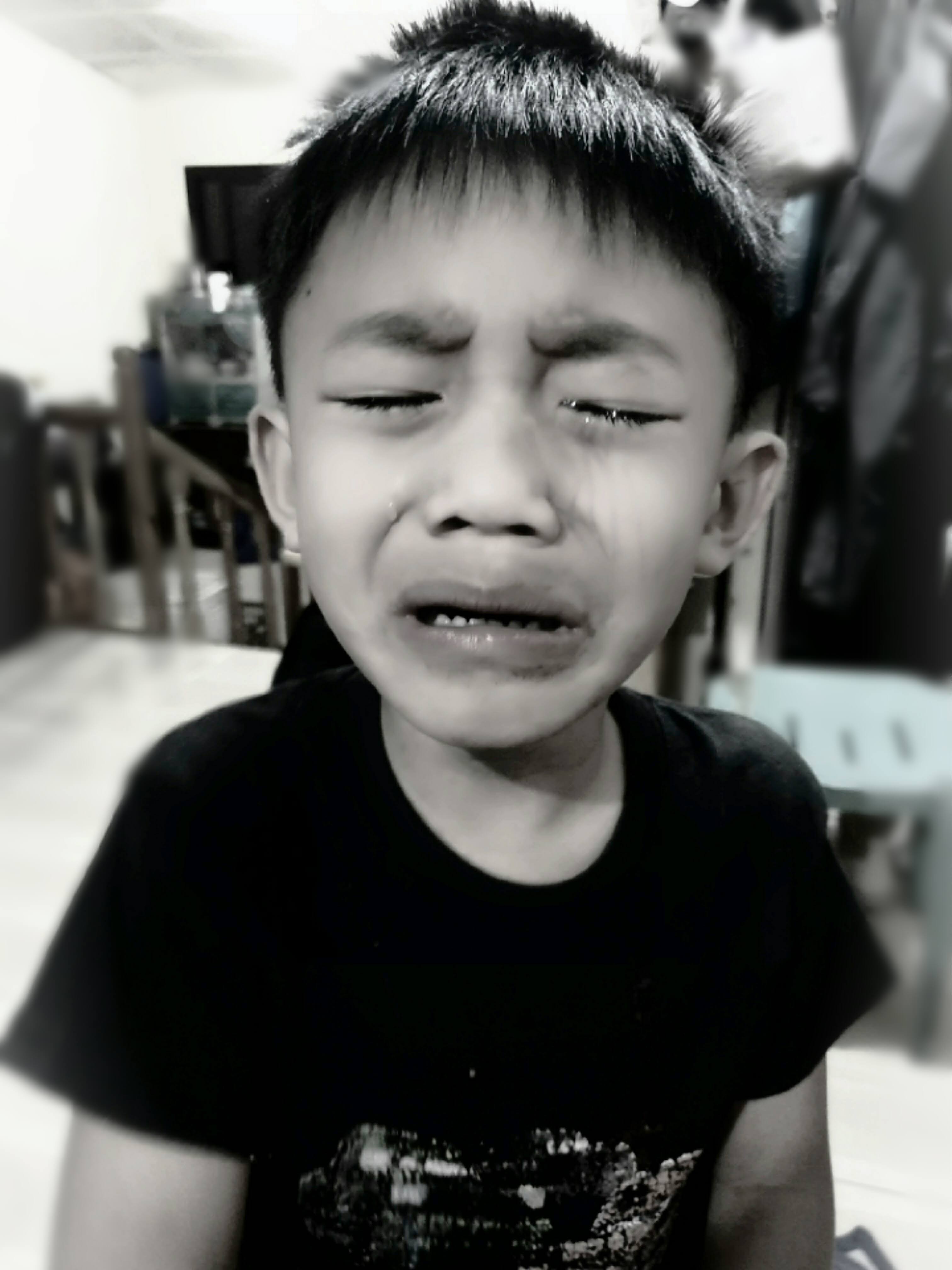My son had a total meltdown today. And it broke my heart.
Earlier this week, I noticed that he had been unconsciously thumb sucking. But he is now seven and hasn’t thumb sucked beyond his toddlerhood. He also had been crying more often these days. Which was also unusual for him. He is a sweet boy and cries very seldom. And most of the time, he is easily consoled.
But today, he cried for something my husband said a long time ago and is irrelevant at the moment. He was crying loud, hitting his dad, and won’t listen. Eventually, I lost my temper and scolded him. I even gave him two spanks in his butt. But he was so upset and won’t stop.
I knew then that something is amiss. And losing my temper and trying to discipline him is a mistake on my part.

Do children develop stress and anxiety too?
According to experts, children can also experience stress and anxiety. And most often, parents are unable to recognize it and proceed with disciplinary measures. However, children experience stress for reasons such as sudden disruption in routines. An example includes traveling away from home or when they are in an unfamiliar place.
The pandemic has affected the world by storm. And while the Covid-19 seemingly eluded most children, it still affected them largely. The sad reality is that the mental wellness of children has been put aside as well.
Unlike adults, children could not understand why classes have been canceled. They also could not comprehend why they are not allowed to go out or play with friends. Parents have been creative in explaining how Covid-19 is a scary disease. But the truth remains that young children lack the maturity to understand why everything has been put on hold.
Children can overhear news or conversation about the pandemic. They noticed the sudden changes that we do at home like frequent sanitizing and using masks every time we go out. This kind of environment can cause fear and anxiety in children which they could not cope with. Eventually, this can take a toll on their mental wellness.
What are the signs of stress in children?
The most noticeable sign of stress in children is regression.
In our case, it was not the first time this happened to our child. I noticed regression in my son during the first month that I reported working. It started with difficulty sleeping and followed by bladder and bowel regression. And after some research, I learned that these are signs that children have developed stress or anxiety.
1. Sleep disturbances
2. Regression from younger developmental milestone
3. Constant meltdown
4. Separation anxiety or being too clingy
5. Withdrawn behavior for older kids
6. Enjoys being alone or prefer to play alone

What can parents do to help children?
After realizing that my son had developed stress the first time, I decided to bring him to my parents. This was before COVID-19 had reached our city. He spent one week at my parent’s house together with his cousins. I acknowledged that his environment will be a healthy distraction from our current set-up.
But today, I have to help him calm down. So I carried and rocked him to provide comfort. After some time, I asked him to take deep breaths which he did. Only after that, he embraced me and cried some more. But his defiance was no longer there.
We stayed in that position for a bit longer. And then we tried deep breathing again. I urged him to identify his emotions. In the end, he voiced out what he wanted. However, we still have to compromise about some things but we were both happy afterward.
Parents and caregivers play a vital role in helping children. Here are what we can do.
1. Recognize any signs or symptoms of stress and anxiety. Know that support is more important than correcting the child at this point. This means that we recognize that the child is not misbehaving. Instead, they are showing signs that they needed help.
2. Deal with the current symptom first. If the child had a meltdown, try to pacify them first. This can be done by embracing the child and rubbing his back. Deep breathing and letting them express feelings is also effective.
3. Stick to their routine as much as possible. Attempt to maintain their sleeping and waking time. You can also arrange activities such as crafts during their usual school time. And don’t forget to provide their snacks during their break time.
4. Help them discover or appreciate new things. This is also helpful when children are moved to a new place. Highlight the family’s new experiences and talk about more things to discover. A walk around the house can also help. You can name objects that caught your attention. It can be a new flower that bloomed or the shape of the clouds that you see. Because everything is an adventure for kids. We only need to support their imagination.
Providing careful attention to our children especially during stressful moments is important. I realized that during these two episodes with my son, our family is going through challenging seasons. This affected him because our home has tension and we were focused on resolving difficulties.
How can parents handle family stress?
I know that it’s difficult to tuck our worries and give full attention to a cranky and difficult child. But what I learned from this experience is to harbor healthy coping mechanisms.
Helping my child to deal with his emotions healthily encouraged me to deal with mine too. It was being mindful of these things that made the difference.
Another important lesson that we can learn from this experience is to ask for help. I doubted our decision to bring my son to my parent’s last time. But the support I got from my confidants and parents helped me with my decision. I know that I could not provide the right support for my son at the time and he needs an immediate diversion.
These experiences made me realize that we need help as a family. And so I have asked our circle to intercede for us. As it is said in Ephesians 6:12, our battles are not against what we see and feel but against the constant attack of the enemy. Thus, let’s put the full armor of God.
Let us also practice the preaching in 1 Thessalonians 5:16-18 which says “rejoice always, pray without ceasing, give thanks in all circumstances; for this is the will of God in Christ Jesus for you.”
From my family to yours, may God bless you.


